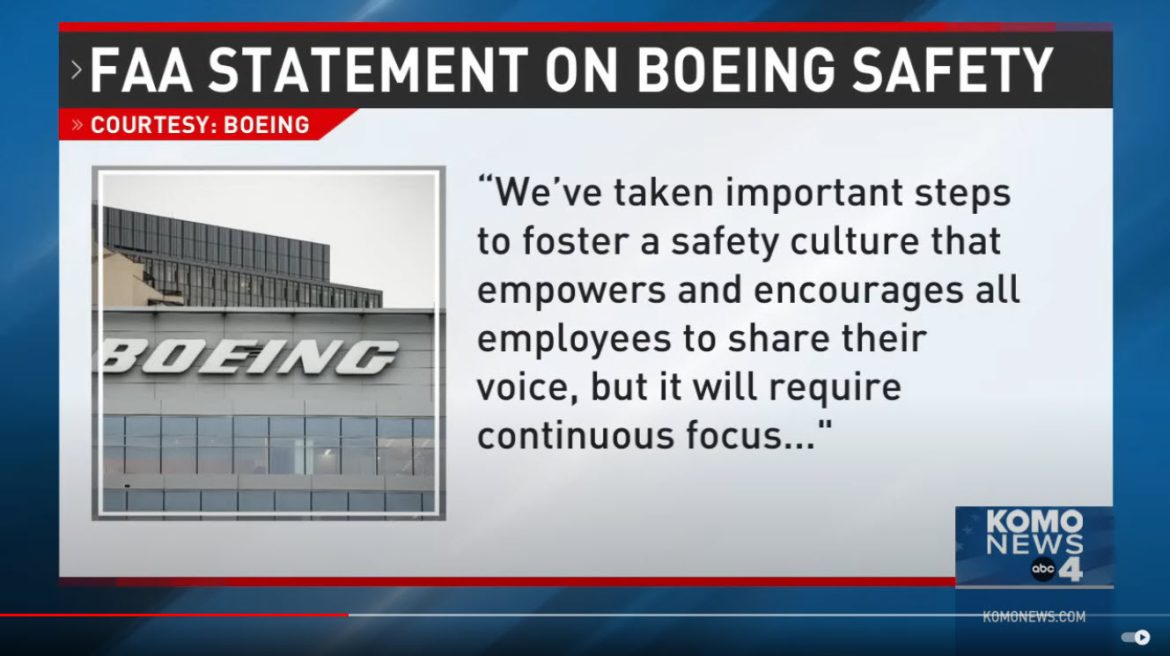A Federal Aviation Administration (FAA) investigation into Boeing has revealed that factory workers felt pressured to prioritize production speed over safety and quality, raising serious concerns about the manufacturing practices of one of the world’s largest aerospace companies. The findings come after a six-week FAA audit of Boeing’s operations, which uncovered multiple safety lapses, including improper safety measurements and missing components in aircraft.
FAA Administrator Mike Whitaker, addressing Congress, called for Boeing to take immediate action to improve the safety of its aircraft. “Boeing must do more to ensure aircraft safety,” Whitaker told lawmakers, emphasizing that the company’s focus on production speed had led to critical oversights in quality control.
According to the FAA report, numerous Boeing employees expressed concerns that they were being pushed to meet aggressive production schedules, sometimes at the expense of thorough safety checks. Several workers cited specific instances where they were instructed to prioritize meeting delivery deadlines over completing proper inspections, leading to compromised aircraft quality.
The investigation was sparked by a series of troubling incidents, most notably an Alaska Airlines flight in which a door plug blew out mid-air. The FAA’s audit revealed that the plane involved in the incident had been improperly assembled, with several bolts missing during production—an error that could have led to catastrophic consequences.
One Boeing employee, who requested anonymity, told investigators, “The pressure to hit targets is immense. It feels like we’re constantly told to focus on speed, and the details sometimes get overlooked.”
The FAA’s audit uncovered widespread issues across several Boeing production lines. Among the most alarming findings were instances of improper safety measurements being taken during the final assembly of planes. In some cases, vital components were either not installed correctly or completely missing, as seen in the Alaska Airlines incident.
The investigation also found that Boeing’s internal oversight mechanisms were not adequately catching these mistakes, allowing faulty planes to make it through production without the necessary repairs or quality checks. According to the audit, Boeing’s quality control teams had flagged several of these issues, but pressure from management to meet production quotas often led to these warnings being ignored or downplayed.
Boeing has not yet issued an official response to the FAA’s findings, but the company is expected to address the concerns raised in the audit in the coming days. In the past, Boeing has faced scrutiny over its production practices, particularly in the wake of the 737 Max crisis, which led to two fatal crashes and a worldwide grounding of the aircraft model.
Lawmakers and aviation safety advocates are calling for increased oversight and stricter regulations to ensure that Boeing—and the industry as a whole—does not repeat these mistakes. “It is unacceptable that speed is being prioritized over safety in the production of commercial aircraft,” said Senator Maria Cantwell, Chair of the Senate Commerce Committee. “We need to make sure that this doesn’t happen again, and that Boeing takes concrete steps to rebuild trust with the public.”
Whitaker, during his testimony before Congress, emphasized the importance of putting safety above all else. “No company, no matter how large or influential, can be allowed to cut corners when it comes to the safety of the flying public,” he said.
The revelations from the FAA audit are expected to have a significant impact on Boeing’s operations and reputation moving forward. Industry experts predict that the company will need to overhaul its production processes and increase investment in safety and quality control measures to restore confidence in its aircraft.
Boeing’s stock has already seen volatility in the wake of the investigation, with investors concerned about potential production delays and legal consequences. The company could also face increased scrutiny from regulators, both in the U.S. and internationally, as it works to address the issues highlighted in the FAA report.
As the aviation industry continues to recover from the economic impact of the COVID-19 pandemic, Boeing’s ability to navigate this latest crisis will be crucial in determining its long-term viability as a leading aircraft manufacturer.



